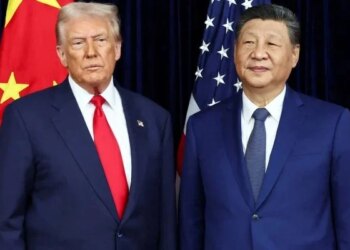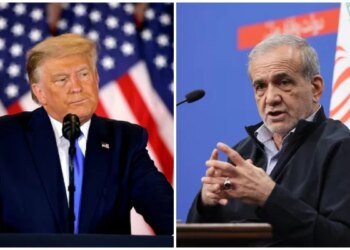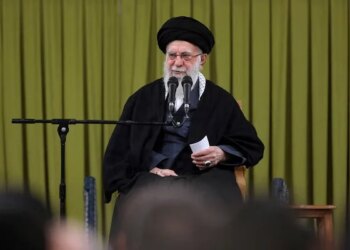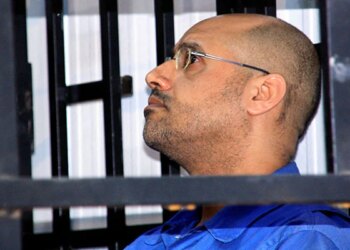Select Language:
A Russian official stated that “dialogue will prevail” amid ongoing tensions. President Donald Trump has set a Friday deadline for Russia to agree to end the conflict, warning of sanctions on countries purchasing Russian exports.
On Wednesday, U.S. envoy Steve Witkoff met with Russian President Vladimir Putin at the Kremlin, just two days before the deadline Trump imposed. Witkoff’s visit was a last-minute effort to find a breakthrough in the more than three-year war triggered by Russia’s full-scale invasion of Ukraine. State television in Russia aired a brief clip of Witkoff shaking hands with Putin at the start of their meeting.
According to Russian news agencies, the discussions lasted approximately three hours, after which Witkoff’s convoy was seen leaving the Kremlin. Kirill Dmitriev, Russia’s investment envoy, who welcomed Witkoff earlier and walked with him in a nearby park, commented on social media, “Dialogue will prevail.”
Neither side issued immediate statements regarding the details of the talks. Trump, increasingly frustrated with Putin over the lack of progress toward peace, has threatened to impose substantial tariffs on countries that buy Russian exports, notably India and China, which are major purchasers of Russian oil. Russia has dismissed such threats as illegal.
Speculation suggests Russia may propose a temporary halt to Russian and Ukrainian airstrikes—a tentative idea earlier brought up by Belarusian President Alexander Lukashenko. If agreed upon, this would fall short of a full ceasefire but could ease tensions. Since direct peace talks resumed in May, Russia has intensified its air assaults, causing at least 72 deaths in Kyiv alone, with Trump condemning the attacks as “disgusting.”
Ukraine continues targeting Russian oil refineries and storage facilities. President Volodymyr Zelensky accused Russia of attacking a gas station in southern Ukraine, a move he described as a cynical attempt to weaken Ukraine’s winter heating preparations. Russia countered by stating it struck military-supplying gas infrastructure.
Ukraine’s chief of staff, Andriy Yermak, emphasized the need for a complete ceasefire and a summit of leaders, asserting that “the war must stop, and for now, this is on Russia.”
Putin is unlikely to accept Trump’s sanctions demands, as he believes he is winning the war and prioritizes his military objectives over improving U.S.-Russia relations, according to sources close to the Kremlin. Experts suggest Witkoff’s visit is a last-ditch effort to find a face-saving compromise, but full agreement seems unlikely.
Russia maintains that it is prepared for a ceasefire only under conditions it has set for years, including NATO’s eastward expansion, Ukrainian neutrality, protections for Russian speakers, and acceptance of territorial gains. Zelensky has firmly stated Ukraine won’t recognize Russia’s sovereignty over occupied regions and retains the right to pursue NATO membership.
Witkoff, a real estate billionaire lacking diplomatic experience, was added to Trump’s team in January. He has been tasked with seeking ceasefires in Ukraine and Gaza, as well as negotiations regarding Iran’s nuclear program. Critics argue he is out of his depth in negotiations with Putin, sometimes echoing Kremlin rhetoric. In March, Witkoff claimed Russia had no interest in taking more Ukrainian territory or expanding into Europe, which contrasts with Kyiv and Western allies’ views. Putin, meanwhile, denies any aspirations to threaten NATO, framing such accusations as evidence of European hostility and “Russophobia.”







